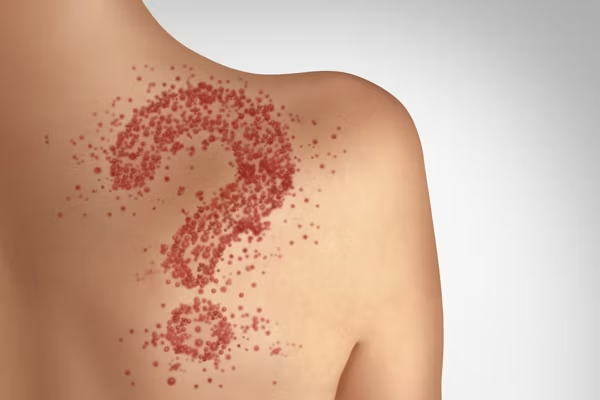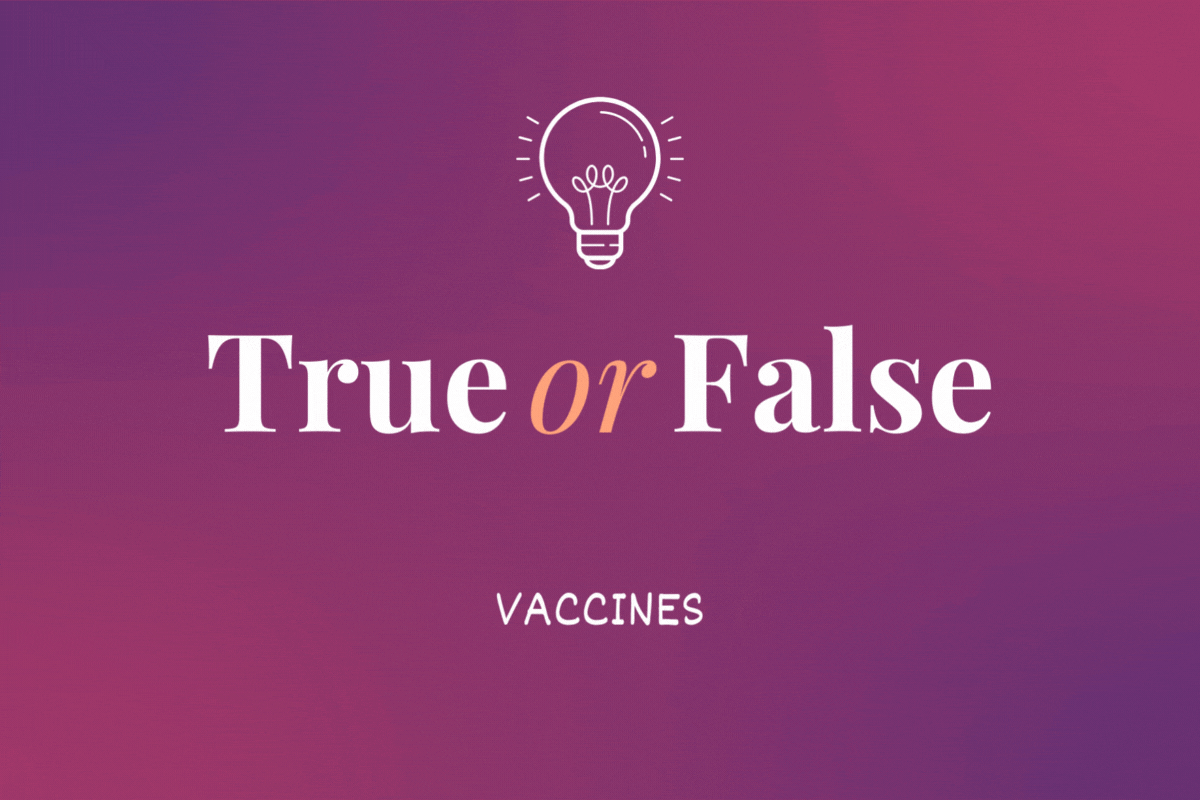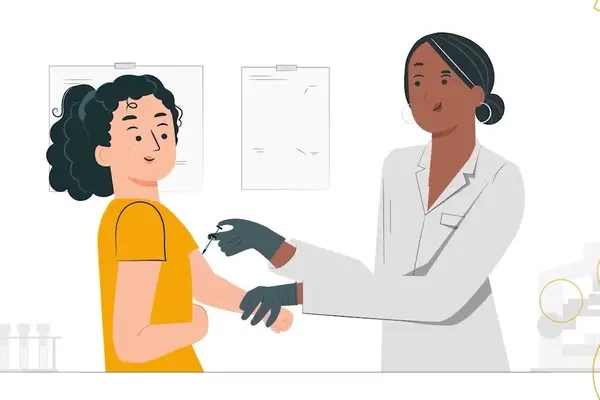Edie Norton went through her first bout of shingles when she was just 28. Now 60, the Herndon, Virginia, technical editor recalled having an itchy rash around her waist for several weeks before seeing a dermatologist. “My doctor took a skin sample of the rash to confirm that I had shingles,” Norton said. Fortunately, Norton’s only symptom was mild itching, which cleared up within several weeks with the help of an over-the-counter anti-itch medication.
More than 25 years later, Norton was surprised to find herself with shingles again. “This time, the rash was across my back, was incredibly itchy and slightly painful,” Norton said. For this go-round, Norton’s healthcare provider prescribed the antiviral medication acyclovir and within a week, the pain and itching were gone. “Now I’m just hoping that getting shingles three times is incredibly unlikely,” Norton said.
What is shingles?
Shingles is caused by the varicella-zoster virus (VZV), which is a member of the herpes family. VZV is the same virus that causes chickenpox. Chickenpox develops after a person is exposed to VZV for the first time, which is often during childhood. Shingles, also known as herpes zoster, develops when the virus gets reactivated in the body later in life, usually many years after chickenpox.
VZV is also responsible for less common conditions such as Ramsay Hunt Syndrome, which you may have heard about recently since Justin Bieber publicly announced that he has the condition. Ramsay Hunt Syndrome is a rare neurological disorder that typically affects adults over 60 years of age. It causes facial weakness or paralysis of the facial nerve and a rash affecting the ear or mouth. Another rare disorder caused by VZV is known as congenital varicella syndrome, which can cause severe abnormalities in an infant whose mother was infected with chickenpox early during pregnancy.
What are the symptoms of shingles?
A telltale symptom of shingles is a rash of fluid-filled blisters. The rash can appear anywhere on your body, including your face. But the most common place is around either side of the waistline. Before the rash appears, you may feel a tingling sensation or a stabbing pain on your skin. After several days, a band or patch of raised dots appears. The dots then turn into small, fluid-filled blisters.
As the rash clears, the blisters may burst, bleed or scab over. Other symptoms might include fatigue, light sensitivity, fever or chills, stomach pain or vomiting, and headache or muscle ache.
Most of the time, a case of shingles lasts three to five weeks.
Who gets shingles?
In the United States, almost one in three people will get shingles at some point in their life, and there are more than 1 million cases of shingles each year.
Anyone who has had chickenpox is at risk for developing shingles, since VZV stays in your body after you recover. Later in life, the virus can reactivate and cause shingles. The risk of developing shingles increases for people over 50 and for those with a weakened immune system from things like cancer, steroid medications, and trauma or stress. Shingles can also occur in younger people, and even in children, especially if they have a weak immune system.
Can you get shingles more than once?
“The virus lives in your nerve roots for the rest of your life and can be activated at any time,” explained pediatric nurse practitioner Mary Beth Koslap-Petraco, D.N.P., who is also a clinical assistant professor at the Stony Brook University School of Nursing. And as Norton discovered, having shingles once is no guarantee you won’t get it again. “While not common, having already had shingles does predispose you to future outbreaks,” Koslap-Petrac said.
Is shingles contagious?
Shingles can’t be directly transmitted from one person to another. People with blistering shingles infections can, however, give VZV to anyone who hasn't had either chickenpox or the chickenpox vaccine. “They won’t get shingles, but they can get chickenpox,” Koslap-Petraco said. Since VZV can only be transmitted through direct contact with fluid from shingles blisters, covering your rash with a bandage will reduce the risk of spreading VZV.
Can there be complications from shingles?
An active shingles infection usually lasts between two and six weeks, but there can be serious and long-term complications.
“The most common long-term complication of shingles is postherpetic neuralgia (PHN), which can last for years,” Koslap-Petraco said. Patients with PHN experience pain at the rash site after the rash clears. The pain may be severe and may last for months or even years. Fortunately, only 10% to18% of shingles patients develop PHN, although the risk increases with age.
Other severe shingles complications can arise if the shingles rash is on your face. A shingles rash that develops near the eye can cause a condition called ophthalmic shingles, or "eye shingles,” which, if untreated, can cause lasting vision damage. Other symptoms of eye shingles can include pink eye, facial swelling and blurry vision.
Can you prevent shingles?
The good news is that a two-dose shingles vaccine can significantly reduce your risk of getting shingles, or lessen the severity of symptoms if you do get it. Even better news is that since 1995, a vaccine for children that protects them against chickenpox will continue to reduce the nationwide incidence of shingles in years to come. “If you don’t get chickenpox, you can’t get shingles,” Koslap-Petraco said.
Currently, getting the highly effective shingles vaccine is your best protection against shingles. The CDC recommends that everyone age 50 and older get two doses of the shingles vaccine, two to six months apart. You can get the vaccine even if you don't remember whether you've had chickenpox. Even if you did receive the chickenpox (varicella) vaccine as a child and have never had chickenpox, it is still recommended that you get the shingles vaccine.
The vaccine is generally available at pharmacies and through many healthcare providers (HCPs). Payment options may include Medicare, Medicaid, private health insurance and vaccine assistance programs. Check your health insurance policy to see what kind of coverage you have or discuss the options with your HCP.
Resources
Vaccine Information.org — Shingles
Vaccine Information.org — Chickenpox
This resource was created with support from Merck.
- Preventive Health Screenings for Women - HealthyWomen ›
- I Got Shingles at 29 - HealthyWomen ›
- 13 Things You Need to Know About Shingles - HealthyWomen ›
- Shingles: What It Is and How to Prevent It - HealthyWomen ›
- Fast Facts: What You Need to Know about Shingles - HealthyWomen ›







